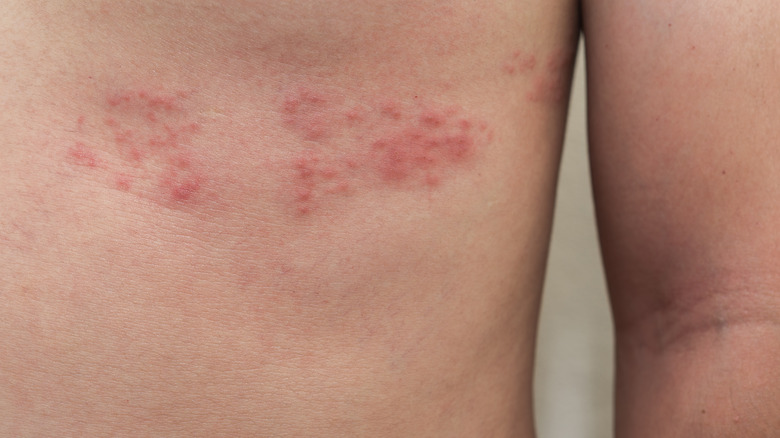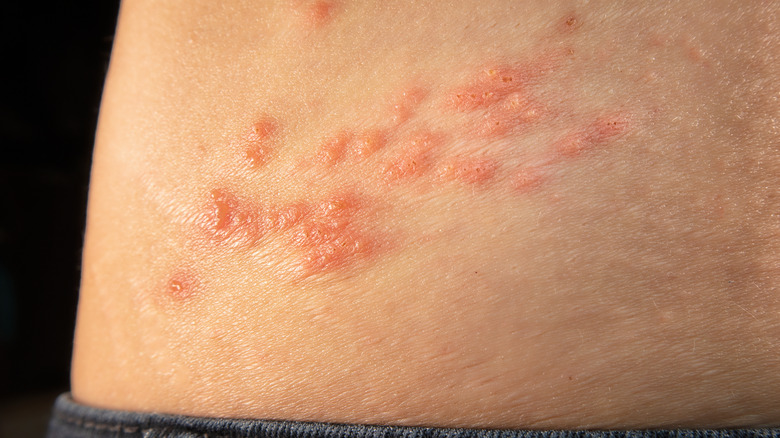Is There A Cure For Shingles?
Shingles is an infection caused by the same virus as chickenpox and leaves behind a painful rash. According to WebMD, chickenpox is caused by the varicella-zoster virus and affects both children and adults. Shingles, also known as herpes zoster, develops in those who previously had chickenpox (via WebMD). Despite "herpes" appearing in its name, the American Academy of Dermatology Association (ADA) says you cannot get cold sores or genital herpes from this specific virus. The chickenpox virus lives in your body's nerve tissues near the brain and spinal cord. When it wakes up, it travels to your skin through nerve fibers.
Once you recover from chickenpox, the virus remains dormant in your body until it decides to reappear in the form of shingles, which could take years. The reason for its reappearance is unclear, however, a lowered immunity may be to blame, per the Mayo Clinic. Along with a painful rash, symptoms of shingles can also include vomiting, fever, headache, and itching, and you should call your doctor immediately for treatment. It's unknown why, but not everyone who's had chickenpox will experience shingles.
There can be complications with shingles, like vision loss, pneumonia, and postherpetic neuralgia (PHN), also known as long-term nerve pain. PHN is severe pain that can interfere with your daily life, even if your shingles rash is gone. The Centers for Disease Control and Prevention (CDC) states that PHN is more common in older adults with pain lasting months to years.
How to treat shingles
Currently, there's no cure for shingles. It usually happens once in a person's lifetime, but it's possible to experience it more than once. Despite no cure for the viral infection, most people are able to treat shingles from the comfort of their homes after seeing a doctor. According to Healthline, the red, painful blisters from shingles can appear anywhere on the body, like the back, waist, chest, or face. Doctors are able to prescribe antiviral medications, numbing creams, or antihistamines to help lessen pain and symptoms, but you'll have to wait for at least 3-5 weeks for the rash to clear (via Healthline).
With your doctor's approval, your can also treat shingles at home by taking a cool shower to relieve your pain or eating foods high in vitamins, like vitamin A or vitamin B12. To help prevent shingles from happening, you can get the varicella vaccine, which is the chickenpox vaccine. Shingles has the ability to spread, especially to those who aren't vaccinated against chickenpox (CDC). People who don't have the varicella vaccine can get chickenpox if they come into direct contact with someone's blister fluid.


